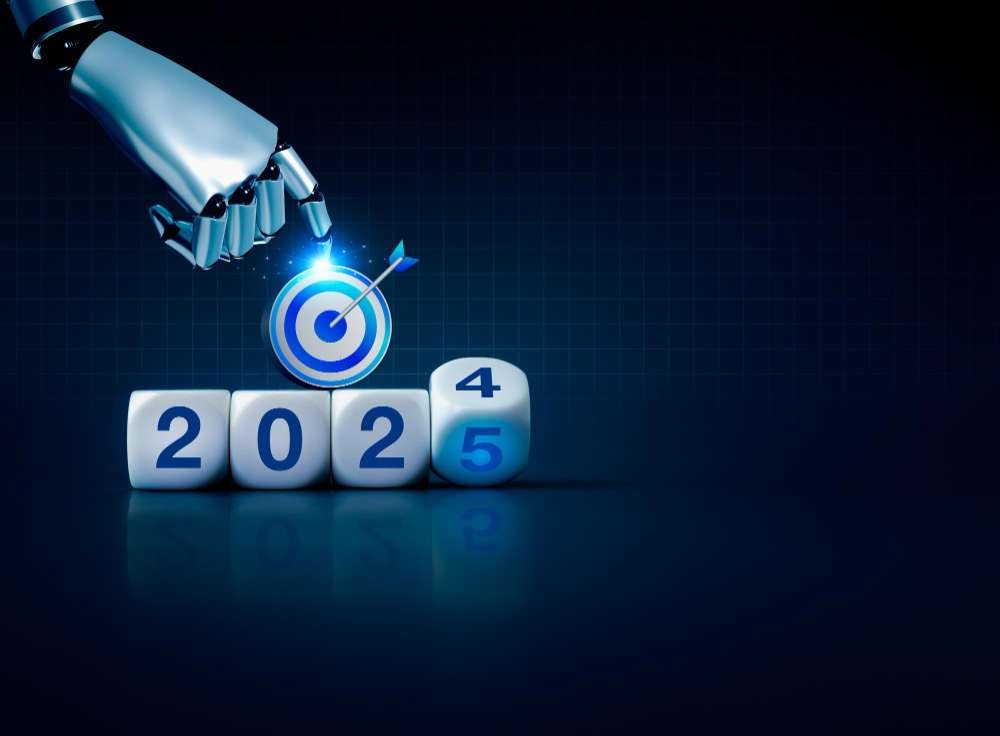The Role of Artificial Intelligence in Marketing
The Role of Artificial Intelligence in Marketing One of the most significant developments in recent years is the integration of artificial intelligence in marketing. AI is changing how businesses talk to customers, look at data, and make personalized experiences. Tools like chatbots and predictive analytics are helping marketing strategies work better and increase sales. Understanding Artificial Intelligence in Marketing Artificial intelligence in marketing means using smart tools and algorithms to make marketing easier, faster, and more effective. It helps businesses automate tasks, understand customer behavior, and create personalized campaigns. AI uses technologies like machine learning (ML), natural language processing (NLP), and data analytics to give insights that help brands make better decisions. AI isn’t just about saving time; it’s also about understanding what customers want, breaking them into smaller groups (audience segmentation), and designing campaigns that fit their needs. With AI, marketers can quickly analyze large amounts of data in real time, which leads to smarter decisions and better customer engagement. How AI is Transforming Digital Marketing 1. Personalization and Customer ExperienceAI in digital marketing helps businesses create experiences that feel customized to each customer. By looking at what customers do online, what they buy, and how they interact with a website, AI systems can suggest products they might like, recommend content that interests them, and even personalize emails. This personal touch makes customers happier, more engaged, and more likely to make a purchase 2. Chatbots and Conversational AIAI marketing agencies are utilizing chatbots and conversational AI to improve customer support. AI-powered chatbots can engage with customers 24/7, answer queries, and provide instant solutions. These virtual assistants enhance user experience while reducing the need for human intervention, allowing businesses to focus on more strategic tasks. 3. Predictive Analytics for Better Decision-MakingAI for marketing includes predictive analytics, which helps businesses forecast trends, customer behavior, and sales performance. By analyzing past data, AI can predict future patterns, enabling marketers to create data-driven strategies. This proactive approach ensures better targeting, higher ROI, and more effective campaigns. 4. Automated Content Creation and OptimizationAI in digital marketing also plays a crucial role in content creation. AI-powered tools can generate blog posts, social media captions, and email copy based on predefined parameters. Moreover, AI analyzes content performance and suggests improvements, helping marketers refine their messaging for better engagement. 5. AI-Powered AdvertisingAI marketing agencies leverage AI algorithms to optimize digital advertising campaigns. AI-driven ad platforms, such as Google Ads and Facebook Ads, use machine learning to analyze user behavior and deliver highly targeted ads. This enhances ad performance, reduces costs, and maximizes return on investment (ROI). 6. Social Media Management and Sentiment AnalysisAI for marketing also extends to social media management. AI tools analyze social media conversations, track brand mentions, and assess audience sentiment. By understanding customer emotions and preferences, businesses can modify their social media strategies for better engagement and brand loyalty. The Future of AI in Marketing The future of artificial intelligence in marketing is promising, with advancements in AI-driven automation, voice search optimization, and augmented reality experiences. As AI continues to evolve, businesses will have more sophisticated tools to enhance customer interactions and optimize their marketing efforts. However, businesses must also be mindful of ethical concerns and data privacy regulations while implementing AI strategies. Transparency, consumer trust, and responsible AI usage will be key to long-term success. Conclusion: AI in digital marketing is transforming the way businesses connect with their audience. From personalized experiences to predictive analytics, AI-driven strategies are reshaping marketing landscapes. AI marketing agencies are leveraging cutting-edge technology to drive better results, making AI an indispensable tool for modern marketers. By embracing artificial intelligence in marketing, businesses can stay ahead of the competition, optimize their marketing efforts, and deliver unparalleled customer experiences. As AI technology continues to advance, the possibilities for innovation in digital marketing are limitless. Share Share on linkedin Share on twitter Share on facebook Share on email ABOUT THE AUTHOR Aditi Jain is working as Digital Marketing Executive, With interest in SEO, Social media, Content Marketing and Performance Marketing for empowering the business bridging innovation with practical solutions in the ever-evolving digital landscape. Linkedin Get In Touch
The Role of Artificial Intelligence in Marketing Read More »




